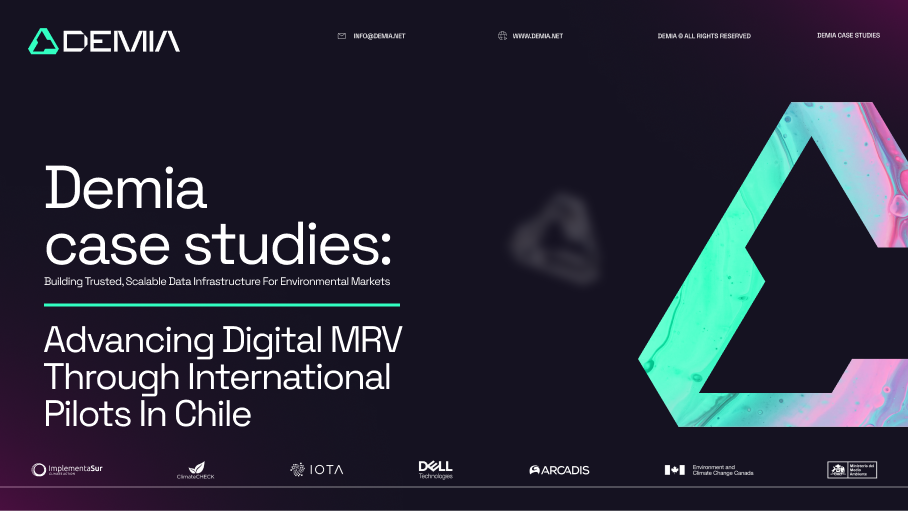
For the team at Demia, this is about building systems that prove what’s true. Early pioneers in digital Measurement, Reporting, and Verification (dMRV) solutions, they’ve enabled governments, project developers, auditors, and financial institutions to trust climate impact data, not just claim it.
The journey began within the IOTA Foundation, where foundational work in blockchain-based dMRV set the stage for enterprise-grade deployments. Combining technical expertise with business acumen, Demia evolved into a for-profit platform capable of scaling trusted data infrastructure globally.
The case study highlights two early-stage pilots launched in 2018 under the Canada–Chile Reciclo Orgánicos Program, with support from Chile’s Ministry of Environment and oversight from Environment and Climate Change Canada (ECCC).
At the Copiulemu landfill gas capture and destruction facility, Demia demonstrated how blockchain-anchored data could transform high-frequency sensor readings into tamper-evident, auditable records suitable for Nationally Determined Contributions (NDC) reporting.
A follow-on deployment at the Molina biodigester, operated by Bio-E for the Viña San Pedro Tarapacá (VSPT) Wine Group, demonstrated the platform’s flexibility, extending beyond landfills to agricultural and industrial use cases and integrating both digitally enabled and manually collected data sources. This innovation directly supported VSPT’s ambition to become a carbon-neutral wine producer at scale.
These pilots were executed in collaboration with a global consortium comprising ClimateCHECK, the IOTA Foundation, Dell Technologies, LF Edge, ZEDEDA, and local project developers. Together, they delivered the first end-to-end, zero-trust dMRV pilots in Latin America, recognized by the World Bank and the Social Alpha Foundation as international reference cases.
Building on these validated pilots, Demia moved from a purely permissionless distributed ledger to a public-permissioned data fabric, a hybrid model combining the openness of public networks with enterprise-level control for GDPR compliance, security, and data sovereignty. Today, Demia is scaling this platform to serve enterprises and governments worldwide, unlocking the next generation of environmental markets.
As climate action accelerates, trust in data is non-negotiable. Demia shows that verification can be embedded into the process rather than added as an afterthought. With blockchain-anchored dMRV, MRV costs drop, verification accelerates, and climate finance flows more efficiently, creating impact that is both measurable and scalable.
This case study is a roadmap for how systems designed for transparency and accountability can transform global climate efforts.
Read the full case study [here].